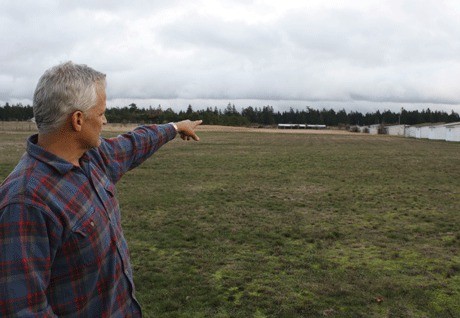While organizers of an institute near Coupeville will continue their primary mission of protecting the environment, they also hope they can organize a more sustainable program.
The seeds are being sown for a new mission that will increase the impact of the programs at the former Au Sable Institute, which is now known as the Pacific Rim Institute for Environmental Stewardship.
Robert Pelant, chief executive officer, said the institute will continue its mission of habitat restoration research. However, there will be an expanded reach. A new non-profit has been formed and organizers are starting to raise the money needed to purchase the land, place a conservation easement on the property and provide enough start up money to offer new programs.
Those programs will benefit researchers, students and the Whidbey Island community, Pelant said. The fund-raising goal is $750,000.
The campus faced a crisis in November 2008 when the Au Sable environmental studies organization announced that the classes offered on Whidbey Island had to been canceled, effectively closing the facility.
Pelant said that financial challenges contributed to the decision to close the campus. Basically, the institute ran three-to-four months of educational programs but had 12 months of costs.
Once he heard the news, he started working on a plan to continue operations at the campus under a separate nonprofit organization. Au Sable is a Christian-based environmental institute headquartered in Michigan.
The popular environmental education classes that were offered to college students will continue. In fact, the campus offered two college classes last summer and is scheduled to add several more next summer.
Staff are also trying to develop partnerships with other institutions to provide research space. Pelant said the Pacific Rim Institute, complete with a native prairie remnant, a central location and building space, provides a perfect place for research on restoration.
“It’s sort of a perfect storm for that sort of thing,” Pelant said.
The institute is seeking a grant to work with the Washington Fire Council for a research project about using burns as a restoration tool. It’s also vying for funding for another project to re-establish the rare golden paintbrush on Whidbey Island.
There is also talk of offering a variety of hands-on community education classes.
“This is a place where people can get soil underneath their fingernails,” Pelant said.
A class at Coupeville Middle School is undertaking a project working with the institute to grow a portion of native prairie. He also talked of partnering with such local groups as the Boys and Girls Club and the Pacific Northwest Art School.
Pelant said the programs that will be developed at the institute will be self-sustaining.
While those programs are being developed, organizers are seeking nonprofit status and putting together a seven-member board. There isn’t a timeline to buy the property from the Au Sable Institute.
Pelant said the institute will lease the property from Au Sable until enough money is raised to purchase the acreage. He said the work to to preserve and protect the land that comprises the institute will continue.
“We’re doing the restoration work because it’s the right thing to do,” Pelant said.The Pacific Rim Institute for Environmental Stewardship is located at 180 Parker Rd. near Coupeville. For more information, call 678-5586.




